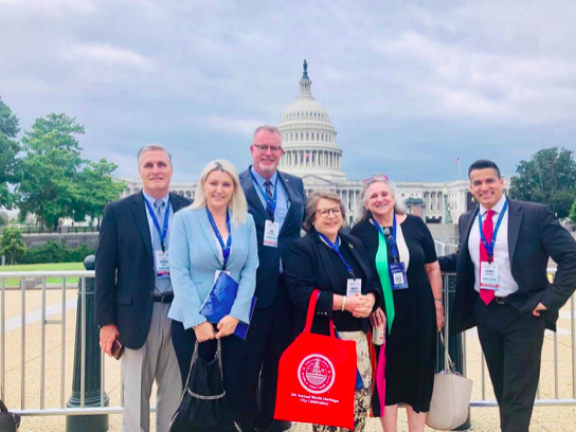Advocates Weigh in on International Affairs Budget and More During Global Impact Forum

By Yesh Khanna
The U.S. Global Leadership Coalition held its Global Impact Forum in Washington, D.C. on June 13 and 14. Furthering its goal of advocating for a strong international affairs budget, USGLC brought together renowned experts and representatives from the private, government and defense sectors to highlight current and potential global issues, ranging from food insecurity to global threats.
An integral part of the forum was USGLC State Leaders Summit, where invited representatives met with elected officials to advocate for increased funding for international affairs initiatives. Among these representatives was Global Philadelphia Association’s Executive Director, Zabeth Teelucksingh.
Teelucksingh was one of the members invited from Pennsylvania to advocate for USGLC’s key tasks presented to the United States leadership apparatus. Among the key points advocated, the primary focus was to increase funding for the International Affairs Budget by 17% for the 2023 financial year, which translates to a total budget of $74.9 billion. The second point pushed was the urgent need to approve at least $5 billion in emergency international resources to combat COVID-19 at the global level. The third and final point emphasized that Congress should continue to champion effective, accountable and results-driven international affairs programs that deliver a return on investment for American taxpayers.
All of the delegates met with the offices of Representatives Dwight Evans, Matt Cartwright, Mary Gay Scanlon, and Senators Bob Casey and Patrick Toomey. Making a strong case for increasing the International Affairs Budget, the delegation highlighted how investing in international institutions and diplomatic endeavors can benefit the American people in realms of security, economic stability and healthcare. Teelucksingh, particularly, emphasized that ‘global matters locally’, highlighting the fact that major events at international levels often create ripple effects at a micro level in local American communities.